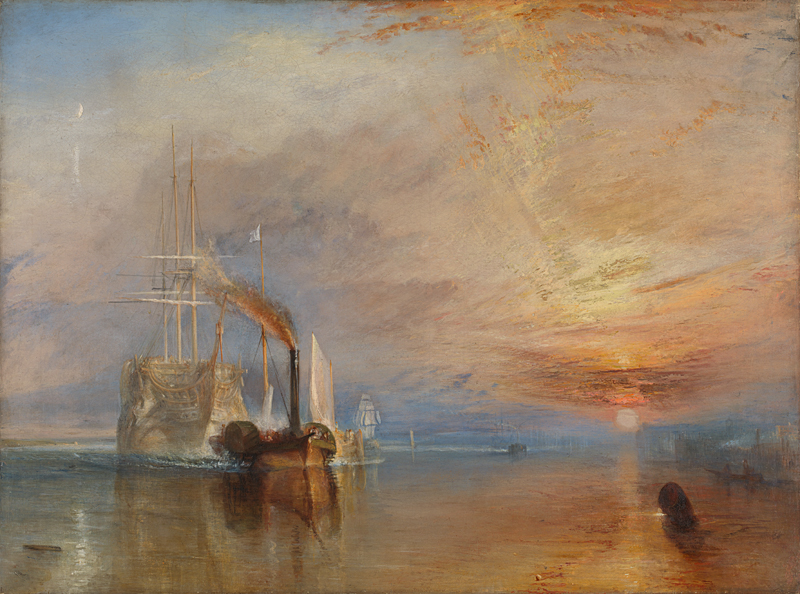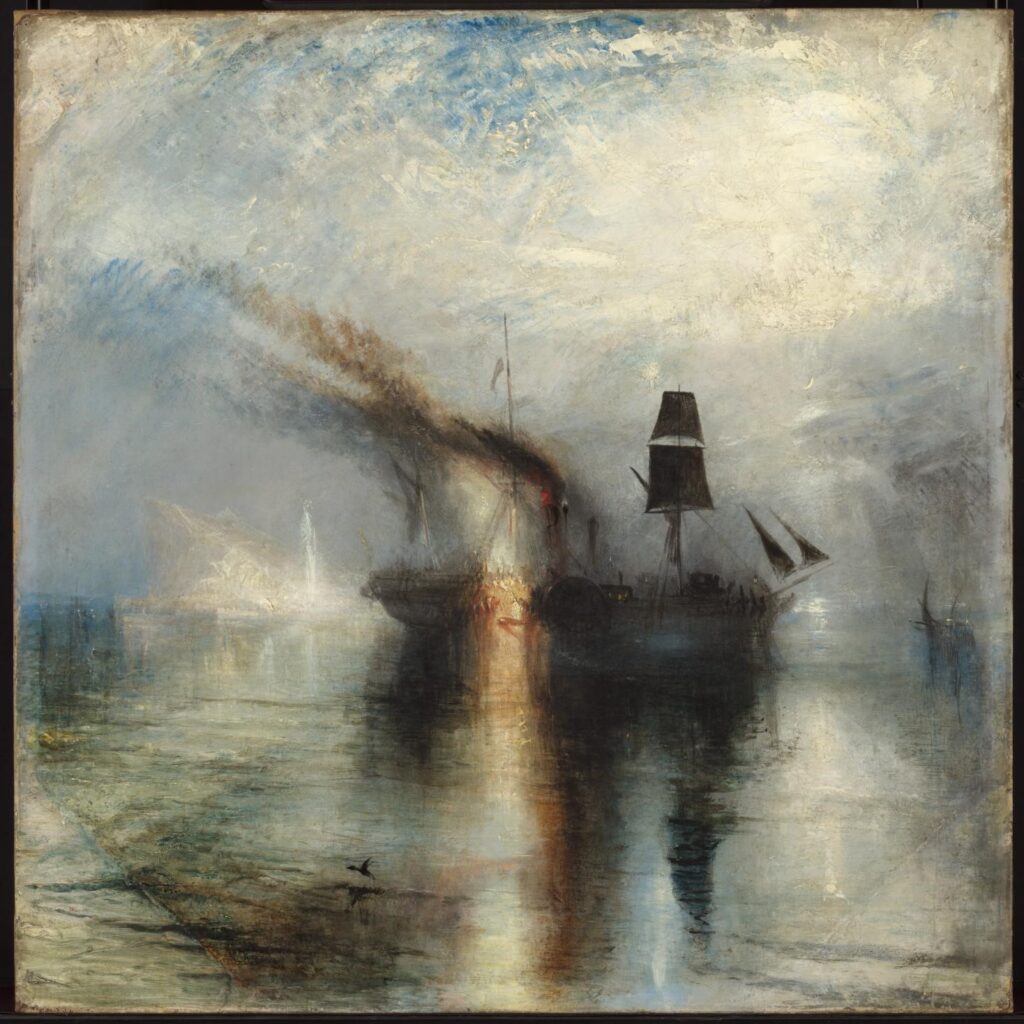
It has been voted as the nation’s favourite painting, features on the £20 bank note and is going on show for the first time in the North East.
JMW Turner’s 1839 portrayal of The Fighting Temeraire will be the centrepiece of an exhibition, Turner: Art, Industry, Nostalgia which runs from May 10 to September 7 at the Laing Art Gallery in Newcastle.
The loan of the painting is part of National Treasures, a programme marking the 200th anniversary of the National Gallery.
The image of the warship, which played a distinguished role in the Battle of Trafalgar, reflects the past and the future as the ghostly wooden veteran is towed up the Thames to the breaker’s yard by a new fangled steam paddle tug.
- Read more: Filling the gap with alternative views of Hadrian’s Wall
- Read more: Kate’s GIFT keeps on giving
In reality, two such tugs shepherded the Temeraire to her end — and both were built in the same shipyard not so far from where visitors will line up to see Turner’s showpiece.
The tug London was completed in 1836 at Stephen Wood’s yard at South Shore in Gateshead and Samson followed a year later.
Samson’s engines were supplied by the Gateshead firm of Hawks Crawshay and Sons. And both tugs worked for the Thames Steam Towing company.
The Temeraire’s last journey of 55 miles took two days, with an overnight stop.
The 98-gun warship was launched in 1798 and was at the centre of the fighting at Trafalgar.
But Samson also had her share of drama. She was almost destroyed by fire after carrying a large number of passengers along the Thames to Gravesend, where she anchored.

A newspaper report tells what happened next. “The fire was discovered by stokers and firemen on board going down engine rooms for the purpose of making preparations prior to the return of the boat to town with passengers.
“Had this calamitous occurrence taken place during the voyage there is no calculating what disastrous results may have ensued.
“The crowded state of the decks must have rendered the loss of an immense number of lives almost inevitable.”
Samson was rebuilt but sank in 1857 after colliding with a Dutch vessel.
London was broken up in 1860. Wood’s yard operated from 1828 to 1841 and built 29 vessels.
Up to 1850, the main centres on the Tyne for tug boat production were North Shields with 149 vessels, South Shields 78, and Gateshead 63.

The Turner: Art, Industry & Nostalgia exhibition will include more than 20 of the artist’s works.
At the age of 22, Turner first visited the North of England on a sketching tour for three months in 1797.
He depicted a number of North East views during his lifetime and the exhibition showcases several examples, including Holy Island, Northumberland.
He also painted Norham, Warkworth and Dunstanburgh castles in Northumberland.

The landmark exhibition will also display important works by artists including Tacita Dean, L.S. Lowry, James McNeill Whistler and photographer Chris Killiip, who lived on Tyneside from 1975-1991 and documented the shipyards and their communities.
It will close with John Kippin’s video piece, ARC (2010), which documents the Tyneside-built warship the Ark Royal leaving the River Tyne for the last time.












1 thought on “Local story behind world famous painting on show at the Laing”
Turner did a number of preparatory sketches and watercolours of Tynemouth which can be found by Googling “JMW Turner Tynemouth.”. The finished painting of Tynemouth Castle from the Haven, reproduced later as a popular engraving, was lost in a fire. The only image of it exists in an old catalogue in an art gallery in the Midlands. Sadly I have lost the address and a photo slide they kindly gave me.